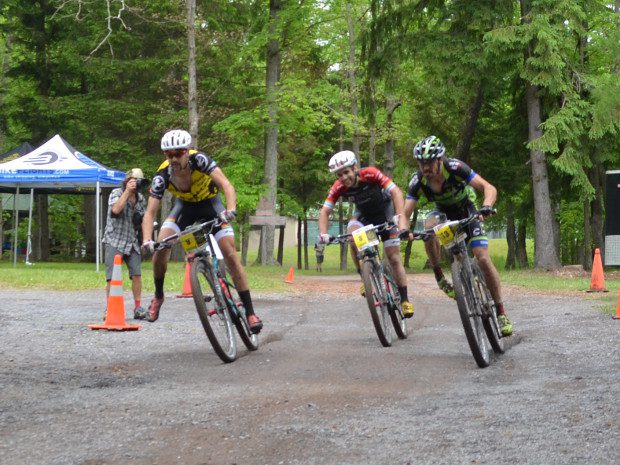Preventing concussions: Skills and strategies for staying safe on the bike
As athletes and coaches, we can reduce concussions and other injuries by ensuring that our skills are at – or above – the demands of our sport.

We have been hearing more and more about concussions during the past 10 years. While it is hard to determine how much of this is an increase in head injuries compared with improved detection and reporting, I do know that 15 years ago, I hadn’t heard of post-concussion syndrome, despite being familiar with concussions as a coach and racer. Today, I know many athletes within the Canadian cycling community who have suffered through extended recoveries, some have still not returned to cycling. While there are plenty of great resources about treatment for concussions, there are very few about prevention specifically for cycling.
As athletes and coaches, we can reduce concussions and other injuries by ensuring that our skills are at – or above – the demands of our sport. As a coach it is my job to present clients with skill progressions in the clinic, in the gym or on the trail to help them build (or rebuild) foundational abilities that they can transfer to their goal situations. Ideally, athletes develop these skills well in advance of competition. This process is similar to the progressive loading we use with training – 200 watts becomes 250 watts over months of practice. For example, to prepare for more dangerous rock gaps or jump obstacles on a mountain bike course, you should practise bunny hopping between two sticks on the ground in a field before adding more complexity. For road cyclists, skills including standing smoothly, pack riding, high-speed cornering, braking, and even bunny hopping could help reduce the frequency and/or severity of crashes. If an athlete is skilled enough to avoid the crashes in the first place, crashes ending in concussions become less likely.
Another area we can improve in as riders is decision-making, specifically around risk assessment. Doing slow, purposeful pre-rides and avoiding high intensity on unfamiliar terrain would have prevented several concussions that I know of from the past year. During a race, if you are not 99 per cent confident on a technical section, you should be ready to dismount. I use 99 per cent to allow for mistakes but to indicate that they can’t happen half of the time. To learn and improve on these fundamental skills, you can check out online resources such as bikeskillsproject.com , visit an indoor facility such as Joyride 150 or find a skilled coach.
“To prepare for more dangerous rock gaps or jump obstacles on a mountain bike course, you should practise bunny hopping between two sticks on the ground in a field before adding more complexity.”
Finally, mental skills, goal setting, focus and visualization are important to have in place before any incident. These skills help us plan and direct our actions to increase success and safety before an incident and also help us cope and progress through a recovery process. While I am not suggesting that mental skills are a cure for extended concussion recovery, I do firmly believe that they can help some athletes suffer less, or for a shorter duration. Athletes who are unsure about their future, in and out of sport, or who struggle with motivation, may have a harder time with injury setbacks. Coaches and parents should ensure athletes are working on all aspects of their wellness before an injury. They should also insist on sessions with a sport psychologist for the athletes during the recovery period to ensure they can speak openly about recovery with someone outside of their family and sport.
It’s my hope that embracing all aspects of our sport (technical, tactical, mental) will help reduce the frequency and severity of injuries generally, but especially concussions given the significant effect they are having on our community.
